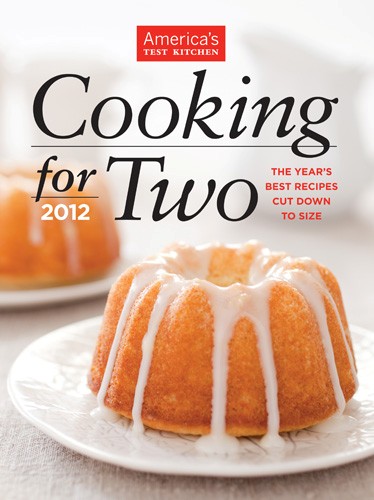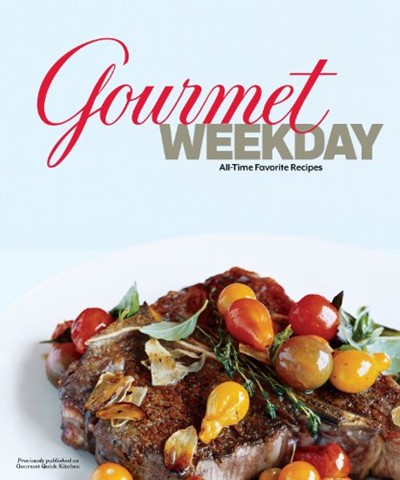Database cookbooks
March 12, 2013 by SusieCorrection: Since this post was published, ATK has contacted me to clarify that some cookbooks (like Slow Cooker Revolution) consist of brand-new content, and others (like Cooking for Two) use database recipes as only a starting point. So the answer is perhaps not as simple as I thought! My point, however, stands: a database remains a critical element in a publishing company’s ability to generate content in a fast-moving world.
 If you’re like me, maybe you’ve
wondered how it is that America’s Test Kitchen seems to produce 2
or 3 cookbooks a month. The answer is simple: the
database. Over the years, ATK (whose print arm includes
Cook’s Illustrated and Cook’s Country magazines, and the Best
Recipe books) has amassed an enormous quantity of
in-house-tested recipes. Those recipes represent a serious
investment on the part of the company, so they continue to be put
to work alongside the new recipes ATK develops .
If you’re like me, maybe you’ve
wondered how it is that America’s Test Kitchen seems to produce 2
or 3 cookbooks a month. The answer is simple: the
database. Over the years, ATK (whose print arm includes
Cook’s Illustrated and Cook’s Country magazines, and the Best
Recipe books) has amassed an enormous quantity of
in-house-tested recipes. Those recipes represent a serious
investment on the part of the company, so they continue to be put
to work alongside the new recipes ATK develops .
 Other magazines have taken a
similar route. Look at Bon Appétit and
Gourmet. Gourmet the magazine, of course,
is no more, and much-lamented. But it lives on not only in the big
signature cookbooks it produced in the mid-2000’s, but in little
one-offs like Gourmet
Italian, Gourmet
Weekday, and The Gourmet Cookie Book. All made
possible by the Condé Nast recipe database (familiar to all of us
from Epicurious.com), which draws from both Gourmet and
Bon Appétit. It’s a way of rescuing the content when
an old business model dies.
Other magazines have taken a
similar route. Look at Bon Appétit and
Gourmet. Gourmet the magazine, of course,
is no more, and much-lamented. But it lives on not only in the big
signature cookbooks it produced in the mid-2000’s, but in little
one-offs like Gourmet
Italian, Gourmet
Weekday, and The Gourmet Cookie Book. All made
possible by the Condé Nast recipe database (familiar to all of us
from Epicurious.com), which draws from both Gourmet and
Bon Appétit. It’s a way of rescuing the content when
an old business model dies.
I’m pretty sure other organizations rely on database publishing, too – Martha Stewart, say, or Weight Watchers – whether or not they derived originally from a magazine model.
The books that result are examples of what I call the “all in one place” argument; i.e., these may not be new recipes, but it’s nice to have them all in one place; i.e., “it’s nice to have all the pasta recipes collected together for me”. There are two powerful arguments for buying an “all in one place” cookbook (rather than, say, subscribing to the source database itself as you can do on cooksillustrated.com): 1) you don’t have a better way of searching for your recipes by subject; and 2) the books make a nice gift you don’t have to think about too hard (“Aunt Heather loves pasta! and this book is cute and reasonably priced!”).
It’s hard to imagine the first argument will hold up much longer, now that powerful tools like Eat Your Books and Google Recipe Search are available. The second, though, is pretty timeless.
How about you? Do you buy database-published books? For yourself? For others? Do you think they’re a good value? Or do you see it as just re-packaging?
Categories
- All Posts (6940)
- Antipasto (2135)
- Author Articles (247)
- Book News (935)
- Cookbook Giveaways (983)
- Cookbook Lovers (257)
- Cooking Tips (109)
- Culinary News (299)
- Food Biz People (552)
- Food Online (791)
- Holidays & Celebrations (272)
- New Cookbooks (149)
- Recipes (1500)
- Shelf Life With Susie (231)
- What's New on EYB (133)
Archives
Latest Comments
- Atroyer7 on Danube Cookbook Review and Giveaway
- demomcook on What foods do you look forward to the most for each season?
- demomcook on Danube Cookbook Review and Giveaway
- Darcie on How cookbooks can help build resilience
- mholson3 on Danube Cookbook Review and Giveaway
- Rinshin on How cookbooks can help build resilience
- sarahawker on Danube Cookbook Review and Giveaway
- Sand9 on Danube Cookbook Review and Giveaway
- hankintoby29 on Heritage Cookies of the Mediterranean World – Cookbook Giveaway
- WBB613 on Feasts of Good Fortune Cookbook Giveaway